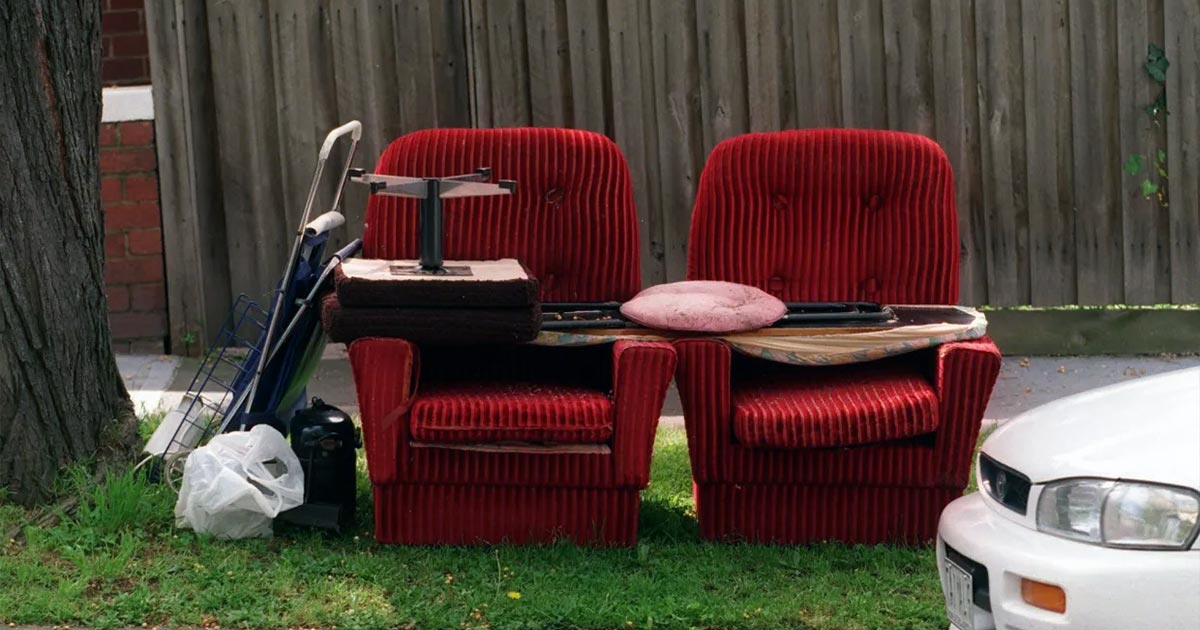
Bulk verge collections were introduced with a noble cause in mind. Perth local councils initiated this service. Sometimes twice a year, to help residents declutter their homes and maintain the cleanliness of the suburbs.
The idea was simple: prevent illegal dumping of large household items by providing a designated time for their disposal. The age-old adage, “one man’s trash is another man’s treasure,” has taken a new turn in modern suburbs.
While it’s common for people to browse through discarded items, hoping to find something valuable, the manner in which this is done has become a concern.
Many individuals, without any regard for the property they’re rummaging through, leave behind a mess. For instance, they might empty out pots to take them, leaving soil and dead plants scattered on the lawn. Such actions not only disrespect the original owners but also create additional work for them.
Beyond the Boundary
Some scavengers don’t limit themselves to the items placed on the curb. Items like barbecues on porches, strollers near entrances, or even garden decorations have been taken under the pretence of “helping” the owner.
When confronted, these individuals often claim they believed they were assisting by moving the items closer to the curb, when in reality, they were stealing.
There have been instances where scavengers, upon finding an incomplete item, have had the audacity to knock on the homeowner’s door, demanding the missing parts.
In one case, a resident was questioned about the speakers for a discarded stereo system. Another resident was approached late at night by someone who wanted a tool to disassemble an old cot.
The Impact on Communities
The aftermath of bulk verge collection weeks is evident in the appearance of local streets. They often look neglected, with debris strewn about for weeks.
This not only affects the aesthetic appeal of neighbourhoods but can also impact property values, especially if someone is trying to rent or sell during this period.
While the concept of bulk waste collection is commendable, the chaos it sometimes brings has led some councils to reconsider. Some are now providing skip bins upon request, hoping to control the mess and prevent scavenging.
Additionally, charity bin collections, which have been a long-standing tradition, are being banned by many councils due to misuse. These bins, meant for clothing and household goods, are often filled with trash, leading to additional expenses for cleanup.
A Reflection of Society
The behaviour observed during bulk verge rubbish collection weeks is indicative of a broader societal issue. It highlights a lack of respect for others and a sense of entitlement. Such actions, driven by selfish motives, leave communities to deal with the aftermath.
While bulk verge collections were initiated with the best intentions, they have inadvertently revealed some unsavoury aspects of human behaviour.
It’s essential to address these issues to ensure that such services continue to benefit communities without the accompanying drawbacks.
Coastal Waste’s Role in Addressing the Issue
Coastal Waste Management has recognized the challenges posed by bulk verge collections and has taken proactive steps to address them:
1. Flexible Sizes
We offer a diverse range of bin sizes to cater to the varied needs of residents. Whether it’s a small household clean-up or a more extensive decluttering project, they have the right size to fit the task.
2. Affordable Pricing
Understanding the financial constraints many face, we provide competitive pricing. This approach encourages more residents to utilize their services, reducing the reliance on bulk verge collection days and discouraging illegal dumping.
3. Prompt Collection
Coastal Waste prioritizes the timely collection of filled bins. By ensuring that these bins aren’t left out for extended periods, they minimize the chances of unauthorized scavenging and maintain the aesthetic appeal of neighbourhoods.
4. Technology Integration
Embracing modern solutions, Coastal Waste Management has implemented technological tools to enhance its services.
Residents can use their online platform or app to schedule pickups, report issues, or seek guidance on waste disposal. This streamlined approach makes waste management more efficient and user-friendly.
In short, with proactive contributions, there’s hope for cleaner neighbourhoods and more responsible waste disposal practices.

